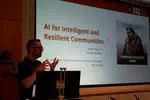The Intelligent Environments Laboratory (IEL), led by Prof. Zoltán Nagy, is an interdisciplinary research group in the Department of Civil, Architectural and Environmental Engineering (CAEE) at The University of Texas at Austin.
IEL advances science, engineering and education towards an intelligent and human-responsive energy infrastructure in the built environment. We develop methods in Machine Learning (Supervised, Unsupervised and Reinforcement), Internet of Things, Data Analytics and System Integration/Deployment, with applications in Occupant-Centric Building Design and Operation and Grid-Interactive Smart Communities.
Latest News
Research Projects
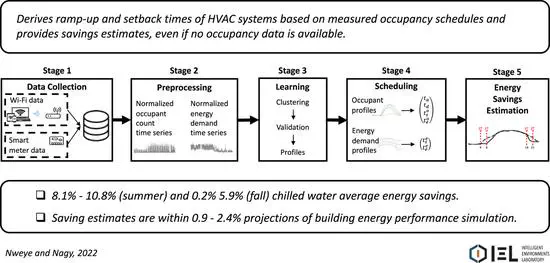
Data-Driven Energy Savings Estimation
MARTINI is a sMARt meTer drIveN estImation of occupant-derived Heating, Ventilation and Air Conditioning(HVAC) schedules and energy savings that leverages the ubiquity of energy smart meters and Wi-Fi infrastructure in commercial buildings.
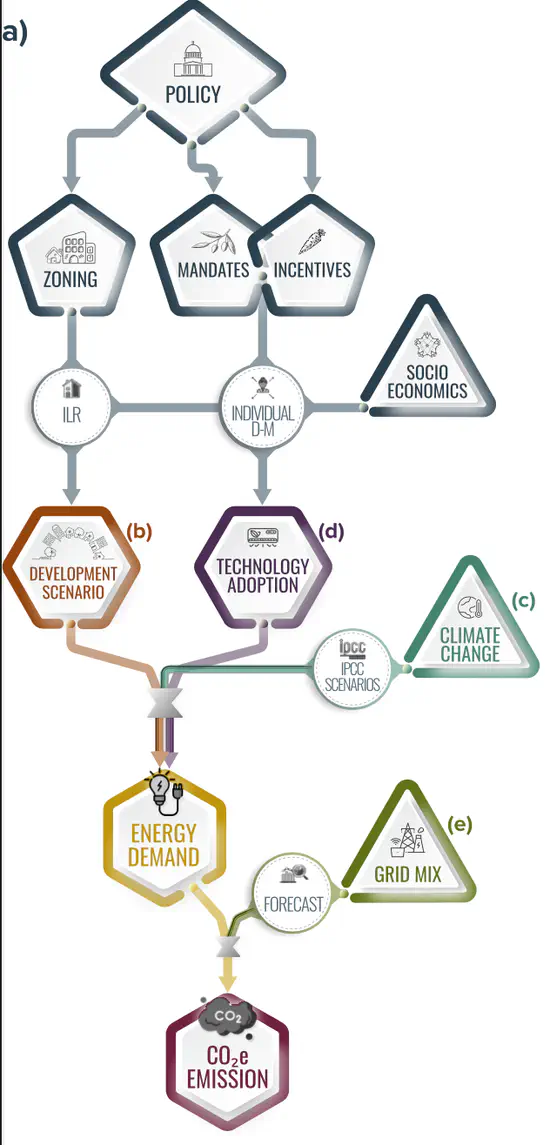
IMPACT Pathways for Decarbonization
Increasing urbanization puts ever-increasing pressure on cities to prioritize sustainable growth and avoid carbon lock-in, yet available modeling frameworks and tools fall acutely short of robustly guiding such pivotal decision-making at the local level.
UTwin: A digital twin for the UT campus
In partnership with Bentley Systems, we are working on a digital twin of the UT campus. We are planning to us it to address the uncertainty in energy demand projections, develop future planning scenarios, and provide guidelines for stakeholders and decision makers to prepare the campus for the effects of climate change.
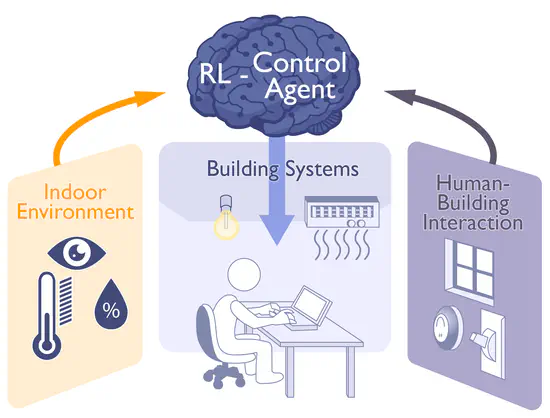
Occupant-Centric Control
An ideal controller should adapt itself to the preferences of the occupant and the environmental conditions. We developed LightLearn and HVACLearn, which are occupant centric controller (OCC) for lighting and HVAC, respectively, based on Reinforcement Learning (RL).
(BEVO) Beacon: A rapidly-deployable and affordable indoor environmental quality monitor
Indoor Air Quality (IAQ) monitoring is essential to assess occupant exposure to the wide range of pollutants present in indoor environments. Accurate research-grade monitors are often used to monitor IAQ but the expense and logistics associated with these devices often limits the temporal and spatial scale of monitoring efforts.
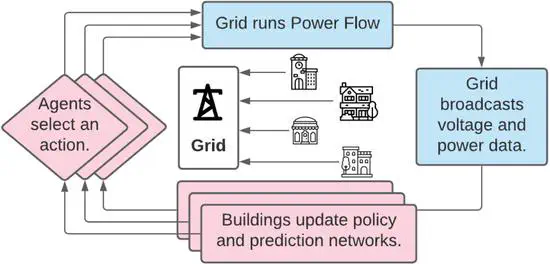
GridLearn
Led by CU Boulder - Griffin Lab (Dr Kyri Baker): Increasing amounts of distributed generation in distribution networkscan provide both challenges and opportunities for voltage regulation across the network. Intelligent control of smart inverters and other smart building energy management systems can be leveraged to alleviate these issues.
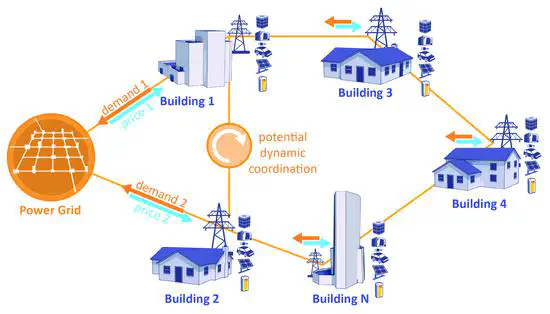
CityLearn
CityLearn is an open source OpenAI Gym environment for the implementation of Multi-Agent Reinforcement Learning (RL) for building energy coordination and demand response in cities. Its objective is to facilitiate and standardize the evaluation of RL agents such that different algorithms can be easily compared with each other. Try it out using our example in Google Colab! More details and installation on GitHub: https://github.com/intelligent-environments-lab/CityLearn


